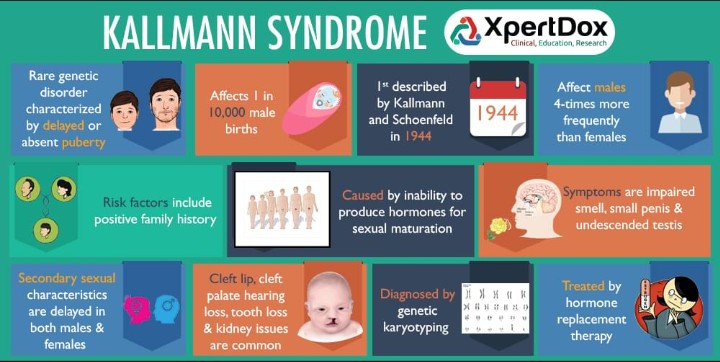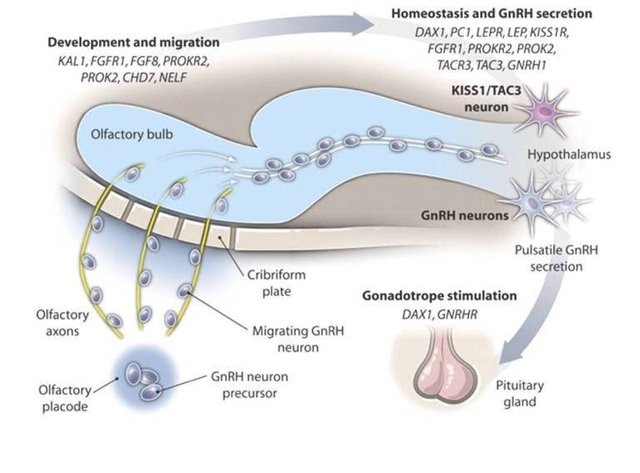Kallmann Syndrome: A Boy in a Man
I had just walked into a hospital to see a friend when I heard a patient muttering to a nurse, “I have not attained puberty at my age. Isn't that shameful? I don't even know what's wrong with me. I’m really fed up”. “Don't worry sir. You don't have to be fed up. Can you smell?” The beautiful nurse asked as she tried to utter a glimmer of hope to the probably frustrated patient. “Oh! I forgot to tell you earlier, I can't even smell.” replied the patient. “Well, with the fact that you can't smell and you still haven't experienced puberty, I think you have to see an endocrinologist” said the smiling nurse who moments later moved over to attend to another patient. Well, their conversation was quite short but it surely left me thinking. How on earth would someone probably at his thirties not have experienced puberty and also can't smell? Being a curious young man, I quickly reached for my phone and did a thorough internet research. From my findings, he had Kallmann syndrome. I had never heard of this before neither have I seen it. But it was something no one would wish to have.
Kallmann Syndrome
Kallmann syndrome is a rare genetic disorder that is characterized by a delay in or absence of puberty and the reduced or total loss of the sense of smell. Kallmann syndrome affects the production of hormone which is required for the initiation and completion of puberty. This hormone is called Gonadotropin-releasing hormone (GnRH).
Causes of Kallmann Syndrome
Kalmann syndrome is caused mainly by genetic mutation of the genes responsible for the migration of Gonadotropin-releasing hormone (GnRH) from where they originate in the olfactory placodes to the hypothalamus. This causes decreased or total absence of Gonadotropin-releasing hormone (GnRH) and associated loss of smell (anosmia).
What you should look out for
Two major symptoms are associated with Kallmann syndrome. These are delayed or absent puberty and anosmia. Males who are born with Kallmann syndrome often present with an unusually small genitals and failure for the testes to descend to the scrotum, a condition called cryptorchidism. Affected individuals do not develop secondary sex characteristics which include the growth of facial hair around the pubic region, deepening of the voice in males , the occurrence of menstruation and development of breasts in females.
The associated anosmia (loss of smell) in Kallmann syndrome differentiates it from other forms of hypogonadotropic hypogonadism, which do not have any effect on the sense of smell. Other symptoms of Kallmann syndrome include decreased libido (low sex drive), loss of muscle tone, palpitations, colour blindness, unilateral kidney failure and dental defects.
Treatment
The major procedure used for the treatment of Kallmann syndrome is hormone replacement therapy. The hormones administered are estrogen and progesterone for females and testosterone for males. Patients of Kallmann syndrome are usually advised to opt for in vitro fertilization (IVF) during counseling for child birth. The use of fertility drugs such as clomiphene or bromocriptine to stimulate the production of eggs and sperm is also encouraged. Artificial human chorionic gonadotropin is often administered to stimulate the production of testosterone in males and ovulation in females.
Conclusion
Kallmann syndrome, a disorder that renders a man, a boy, is one disorder which no one would wish for. Anyway, with proper management and therapy there is still a life for patients with Kallmann syndrome.


Congratulations @shodiya! You have completed some achievement on Steemit and have been rewarded with new badge(s) :
Click on any badge to view your own Board of Honor on SteemitBoard.
For more information about SteemitBoard, click here
If you no longer want to receive notifications, reply to this comment with the word
STOP